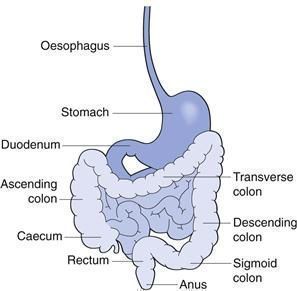
World Meningitis Day kicks off with wave awareness campaign
World Meningitis Day: Onda’s awareness campaign kicks off
In hospitals with Bollini Rosa (Pink Stamps) and on Facebook, the campaign of Onda, National Observatory on Women’s Health, for clear, correct and evidence-based information on vaccines
Although vaccines are considered important by 9 out of 10 moms, 3 out of 4 do not hide concerns about their use, complicit with misinformation
Meningococcal vaccine, the one against meningitis, is for mothers among the most important for their children. This is certified by a recent survey by SiMPeF, Syndicate of Family Pediatricians conducted on a sample of 400 Lombardy mothers with pediatric children, which places it second only to the combined diphtheria, pertussis and tetanus vaccine, considered useful by 95 percent of mothers compared to the 93 percent obtained by the meningitis vaccine. In a more general picture, moms are leaning toward vaccination and consider it important 94% of the time, although 3 out of 4 do not hide anxieties and concerns.
The pediatrician is the most reliable source of information on the subject according to 94% of respondents, although social networks and Facebook in particular are considered by 38% of moms as a reliable resource in cases of doubt and perplexity on the subject.
And it is precisely on social networks that Onda, the National Observatory on Women’s Health, has decided to focus to provide clear and correct information on the topic of vaccines. On the occasion of World Meningitis Day on April 24, the Observatory is launching an information and awareness-raising project aimed at mothers on the importance of vaccine prevention carried out thanks to the unconditional contribution of Pfizer, which will also feature hospitals with Pink Stamps.
“In line with the goals of the National Vaccine Prevention Plan 2017-2019, which has implemented the free offer of all recommended vaccinations in pediatric and other ages, Onda has decided to produce an informative publication that will be distributed in the Hospitals with Pink Stamps and will be downloadable for free at www.ondaobservatory.it and a digital campaign that will start from Onda’s Facebook page (@ondaosservatorio) and will target mothers through ad hoc posts and video pills,” explains Francesca Merzagora, president of Onda. “The aim of the project is to make a contribution in promoting a culture of vaccine prevention, specifically delving into meningococcal and pneumococcal infections, which are the main pathogens of bacterial meningitis.”.
Over the past year, there has been much discussion about meningitis and vaccines in a climate of fear, uncertainty, prejudice and, above all, misinformation. Vaccination centers have been stormed by requests for anti-meningococcal vaccination as a consequence of an epidemic that is more “media” than real, given that data document an epidemiological picture in Italy overlapping with the previous year – meningococcal disease, which is the most dangerous pathogen, continues to be responsible for about 200 cases of invasive disease per year. All this has occurred against a backdrop marked by a progressive decline in pediatric vaccination adherence nationwide.
The Ministry of Health has sounded the alarm: since January 2017 there has been an increase in the number of measles cases, which have more than tripled. And the risk affects all preventable diseases, precisely as a consequence of the presence of pockets of susceptible population because they have not been vaccinated or because they have not completed their vaccination cycles.
“Misinformation, aided and abetted by the web, is rampant and confusing, and the very success of vaccines, which has led to the disappearance of some dramatic diseases that were once widespread, has contributed to a decline in the perception of the danger of these infections,” Merzagora continues. “We are talking about diseases that can be responsible for serious, very serious consequences up to and including death and that can instead be prevented. So why give up an effective and safe tool like vaccination? The scientific evidence is all in favor of vaccines, and the same epidemiological data prove their effectiveness and real impact on public health.
Clear, correct information based on solid scientific evidence allows people to make informed and responsible choices for their own and their children’s health. An inalienable right and duty to perform an act of not only individual but also social responsibility.”
“Advances in Medicine have made it possible to cure very serious diseases such as cancers and inflammatory rheumatological and/or gastrointestinal diseases,” says Alberto Villani, President SIP, Italian Society of Pediatrics. “In our days it is also possible to diagnose and treat rare genetic and metabolic diseases, something unthinkable just a few years ago. Unfortunately, treating meningitis is still a lost challenge: 1 in 10 people die and 3 in 10 have permanent, more or less severe, lifelong outcomes. Nothing is more frustrating for a physician today than caring for a person with meningitis: it is not possible to make predictions about what will happen.
We actually have a safe and effective weapon: vaccination. The new essential levels of care, the LEAs, offer vaccinations against all major forms of meningitis: if the Regions comply with what is provided in the LEAs, in a few years we could reach the important goal of broad protection of the Italian population in Italy. Meningitis from Haemophilus Influentiae, Streptococcus Pneumoniae, Neisseria Meningitidis A, B, C, W, Y will be just a sad memory”.

